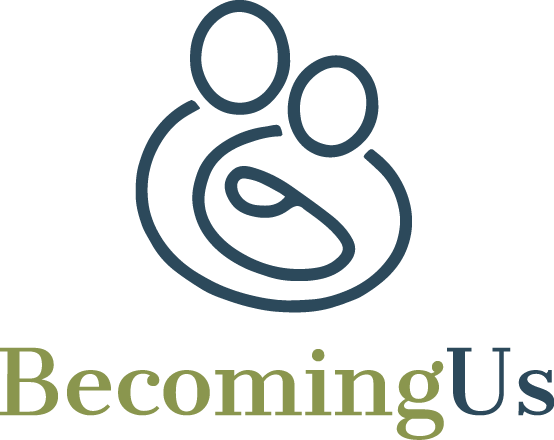You know the movie scene where the baby is born and both parents cuddle the baby together and the baby fixes everything in their relationship? And then the three of them live happily ever after, “The End”. In reality that’s all it is - a scene from a movie. A moment in time. And it’s not the end - it’s just the beginning.
And the notion that having a baby brings Happy Ever After is no more real than a superhero saving the day.
Because the truth is the stresses of parenthood - becoming a parent - brings stresses and babies don’t fix relationships, they challenge them. Some couples get a puppy and expect this has prepared them for parenthood. They care for the puppy like it’s a newborn and for a short while the puppy’s survival is dependent on them absolutely. But soon enough they can leave the puppy home all day, and return to work - and their old way of life. The puppy will eventually fit in. Babies don’t.
Having a baby is next level. It affects new parents entire life AND it happens overnight. In the space of 12 hours parents now have broken sleep, no routine, reduced capacity to earn an income, have to figure out a tiny baby’s intense needs and wants (non-verbally!!!). Plus there’s a whole host of expectations (their own expectations plus those of family, friends and even strangers/society) to deal with.
Lives - and often relationships - need to be reconstructed.
Add to that the extra challenges for mothers: body changes, breastfeeding, trying to get everything done, often with not enough support - it can be off-the-scale stressful.
But there’s something you can do to help expecting parents prepare for all this. There’s a wonderful thing called the Orchid Hypothesis, which teaches us that we all have a system in our brain (called the cholinergic system), that’s responsible for new learning. And this little puppy is particularly relevant for new parents, because:
It’s all about expectations. And as you know, expectations are HUGE in the perinatal period. In fact, in one Australian survey, 60% of women said their postpartum depression was due to unrealistic expectations of parenthood.
Here's what researchers have discovered:
When people's expectations are violated (for example if we tell expecting parents that parenthood is going to be everything they ever dreamed of, they'll be happier than ever, or we don't tell them anything at all to prepare them) and then they start finding it isn't what they thought it would be, it's harder and challenging in unexpected ways, parents experience unexpected uncertainty. This may in part account for the 33% of new mothers and 17% of new fathers who are experiencing anxiety in the postpartum period.
If, on the other hand, parents expect uncertainty, this switches on the cholinergic system in the brain, the anticipation of learning and seeking support - which is exactly what we want parents to be prepared to do in the postpartum period.
This is why it’s so important to prepare new parents and set realistic expectations.
If you work with new parents you can make a difference, and here’s how:
Work with expectant parents prenatally to create a plan for postpartum (this can be done after birth - but before baby is preferable).
Give them examples of realistic expectations of new parents. Tell them what other couples do to cope with common stresses.
Encourage them to start building their village now. Only other parents truly know what it’s like and can listen to the stresses with an understanding nod or hug.
If you’d like more support to prepare and support parents with the gritty realities and stresses of parenthood - so they’re able to enjoy the joys even more - you might like to consider our Becoming Us professional training.
Find out more about our online training for professionals

